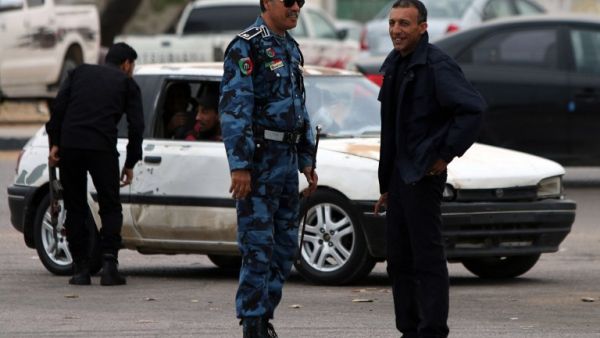More than four months have passed since Libya’s rival camps agreed to end the country’s ongoing political crisis by forming a transitional unity government.
Despite the agreement in Skhirat, a town on Morocco’s Atlantic coast, it has been a month since members of the unity government arrived in the Libyan capital Tripoli to take up office. They are still waiting to assume their mandate to govern.
The reasons for the ongoing crisis are a subject for debate among analysts but the steady flow of weapons into the country and the refusal of members of both camps to compromise are among the leading factors.
Bashir al-Jouini, a Tunisian expert in Libyan affairs, told Anadolu Agency that achieving stability in Libya would “remain impossible as long as regional powers continue to provide military support to the conflicting parties".
This view is shared by Patrick Hamzadi, a former French diplomat to Libya, who criticized the “silence of the Western powers and the UN despite the direct military support provided by the United Arab Emirates and Egypt to Gen. Khalifa Haftar” - a reference to the army chief appointed by Libya’s Tobruk-based parliament.
He added that supplying arms to Libya’s warring parties was a breach of UN Security Council resolutions.
The resolution, passed in 2011, prohibits the supply of weapons to Libya and calls on member states to inspect ships heading to Libya and to confiscate and destroy any weapons found aboard.
Since the overthrow of Muammar Gaddafi in 2011, Libya has been in a state of turmoil that has thrown up two rival seats of government in Tobruk and Tripoli. Both administrations boast a significant military capacity and a legislative assembly.
French soldiers
Late last year, the rival governments signed an UN-backed agreement in Skhirat to establish a unity government in an effort to resolve the country’s five-year political standoff.
However, the Tobruk parliament is yet to endorse a Cabinet proposed by Faiz al-Sarraj, the prime minister-designate of the unity government, which is to steer the country through a one-year transition until elections can be held.
At a seminar held last month, Hamzadi accused the West of contributing to Libya’s ongoing political crisis.
“France, for example, has sent soldiers to Benghazi in an attempt to support Gen. Haftar, who rejects the Skhirat agreement and opposes the unity government," he said.
“Meanwhile, France claims to support a ‘political solution’ in Libya. France is complicating the situation in Libya by encouraging a military solution at the expense of a political one.”
Earlier this year, French newspaper Le Monde claimed French troops had been deployed in Benghazi to support Haftar’s fight against Daesh. Citing sources in the French Defense Ministry, the daily did not provide many details and the ministry refused to confirm or deny the report.
Last month, Mustafa al-Rajabana, Libya’s ambassador to the Vatican, told Italy’s La Stampa newspaper that Egypt was contributing to the destabilization of the country “by supporting members of Libya’s Tobruk-based parliament who are Haftar’s allies and who oppose the unity government”.
He added: “Egypt must recognize that it must coexist with a unified and coherent Libya. It’s true that a branch of the Muslim Brotherhood exists in Libya but the brotherhood exists in several Arab countries. Outlawing them can only lead to domestic conflict.”
Opponents of Skhirat
Egypt made the brotherhood illegal following a military coup against the country’s first freely elected president, Mohamed Morsi, in mid-2013.
Cairo has denied claims that it has supplied weapons to Haftar.
Other experts attribute Libya’s ongoing political divisions to the two rival camp’s intransigence.
Abdul-Razzaq al-Aradi, a member of Libya’s former National Transitional Council, which ran the country for a year after the collapse of the Gaddafi regime, said the current conflict was not one between Islamists and secularists but between “those who want to see the country led by a unity government and those who refuse to surrender their current positions and powers”.
He singled out Haftar, who wants to maintain control of the Defense Ministry, and Nouri Abu Sahmain, current chairman of the Tripoli-based General National Congress, as among the leading figures opposed to the Skhirat agreement.
Al-Aradi told Anadolu Agency that the pro-Haftar camp attempted to justify its rejection of the unity government by “citing fears that the Islamists will overrun the country”.
He added that Abu Sahmain’s opponents “try to portray the unity government as a Western conspiracy aimed at undermining Libya’s sovereignty”.
By Saifuddin Trabelsi and Ali Abo Rezeg








